SOL: The Panama Papers are nothing but a smoking gun being used to access private corporate information from small economical private shell corporations in the states of Nevada and Wyoming for a private citizen to have an anonymous resident corporation protected from easy access by BIG BROTHER. If the Feds had evidence of any wrongdoing they would obviously have access but these private individual corporations do not have open books for everyone to view. These anonymous shell companies are legal in most U.S. states.
According to the Panama Papers, Bill & Hillary Clinton have three foreign shell corporations registered in the state of DELAWARE,
U.S. Shell Companies Are Just as Common as Panamanian Ones
Dozens of firms creating foreign-based shell companies in two U.S. states
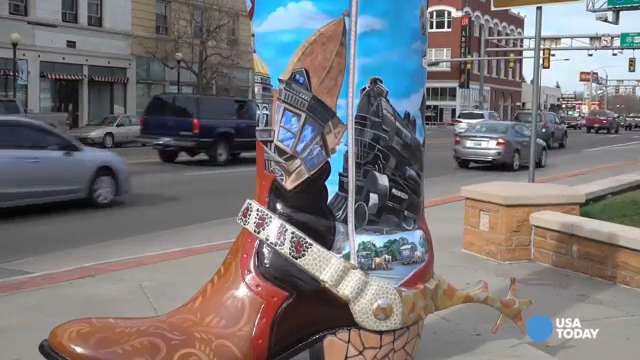
Cheyenne, Wyo. is getting attention for its role in the Panama papers scandal. Video by Trevor Hughes
Mossack Fonseca , the focus of the Panama Papers leak, is far from the
only company mass-producing shell companies in secrecy-friendly states
like Wyoming, Nevada and Delaware.
A
USA TODAY examination of the limited records that are available —
some states are making corporate records increasingly invisible — shows
that Mossack Fonseca registered less than 2% of the Nevada "companies"
that are linked to addresses outside the United States. A similar review
of Wyoming's more secretive records shows that just 24 of more than
2,000 foreign-based businesses registered since 1990 were created by
Mossack Fonseca's Wyoming branch.
The
states have become willing partners in the lucrative front-company
business that generates millions of dollars in revenue for the
government.
Indeed,
the review of corporate-registration data shows there are more than 50
firms in Nevada that have registered as many or more different companies
than Mossack Fonseca, and many with bundles of businesses tracing back
to shared addresses in places from Panama to islands off the European
coast.
The motive for U.S. states appears to be simple: mountains of cash.
In
Delaware, which does not levy sales or personal property taxes, revenue
from the state’s Division of Corporations totaled $928 million in 2014 —
nearly 30% of the state’s overall tax revenue. Almost 90% came from the
taxes charged for registering new companies.
In
Nevada, records show more than 20,000 companies with foreign addresses
have registered in the state since 1975. More than half were registered
in the last decade as state lawmakers expanded corporate secrecy
protections in a transparent bid to draw revenue from new registrations.
The
Nevada secretary of State’s Office earned $138 million from commercial
recordings, which includes new business filings, in 2014. A decade
earlier in 2004, that figure was just above $45 million. Nevada’s
overall state revenue in 2014 was $17 billion.
And,
in Wyoming, the state's secretary of State took in $31 million in
revenue in 2013-14 fiscal year from its business division, which
includes corporation filing fees. Overall revenue in the state's
annual budget totals about $7 billion.
JUST ONE OF MANY
What
set apart Mossack Fonseca is the blinding spotlight of a document leak
that generated headlines around the world. The massive leak of documents
highlighted how the Panamanian law firm had helped the world's rich and
powerful, including government officials, celebrities and people at the
center of international corruption cases, hide their financial assets
and dealings.
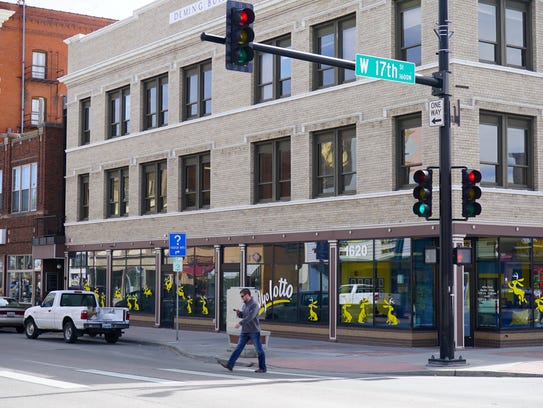
A
man checks his cellphone as he crosses Central Avenue in downtown
Cheyenne in front of the Deming Building housing the corporate services
office that is listed in state records as the address for Mossack
Fonseca's operation in Wyoming. (Photo: Trevor Hughes, USA TODAY)
While
many foreign-linked business entities are formed for legitimate
purposes, USA TODAY’s review of Wyoming and Nevada business records
suggests Mossack Fonseca’s U.S.-backed affiliates represent a narrow
snapshot within a much broader landscape of overseas shell companies
operating from the two states.
“If
you think that there’s one law firm that’s orchestrating this around
the world that’s crazy,” said David Brunori, research professor of
Public Policy and Public Administration at George Washington University
.
Other
registered agents in Nevada tied primarily to overseas addresses
include Nevada Commercial Registered Agents LC, which is connected to
more than 200 businesses formed in Nevada since 2000 — all but six of
which trace back to the same post office box in Panama.
Nevada
business records list the officer of the companies tied to that
Panamanian post office box as David Batrick. USA TODAY found Batrick not
in Panama, but at an office in Nevada. Answering the phone near Lake
Tahoe , Batrick said his operation should not be confused with shell
company operations like Mossack Fonseca’s.
“Nevada
Commercial Registered Agents has nothing to do with anything like that
type of activity,” he said. “We are not aware of any clients that do
anything like that.”
Nevertheless, a website tied to Batrick’s firm, Nevada123.com,
advertises its services using the secrecy-friendly business laws of
Nevada, Panama, and St. Kitts and Nevis , among other
jurisdictions. “We believe in Liberty and the Right to conduct your
personal and business affairs privately and confidentially behind the
‘veil’ of a Corporation or Limited Liability Company,” the website
states.
Batrick declined to disclose his country of residence or citizenship, but said it was not Panama or the United States.
“Currently
you’ve called Nevada. I happen to be here,” he said. “But I do not
spend a lot of time in Nevada, nor am I a Nevada or a U.S. resident.”
Nevada
business records link Nevada Commercial Registered Agents LC to
Corporate Global Management LLC, which in turn shares the same post
office box on the 36-square-mile Caribbean island of Nevis, with
Morning Star Holdings LLC. In a pamphlet on its website, Morning Star
Holdings advertises that for businesses incorporated through Nevis,
“ownership information is confidential.”
Ernie
Dover, managing director of Morning Star Holdings, declined to discuss
the relationship between Morning Star and Corporate Global Management
LLC or answer any other questions when reached by USA TODAY at his Nevis
telephone number.
MONEY LAUNDERING OFFICERS
Other
firms which have specialized in registering foreign companies in Nevada
include Okiebisu International Inc., based in Nishinomiya, Japan .
Okiebisu has registered 52 business entities in the state since 2013.
On
its website, Okiebisu International advertises its services helping
facilitate corporation registrations in select states in the U.S.,
noting that American corporations are not subject to Japan’s Companies
Act, which would require companies to disclose their owners.
Though
the patterns are similar, it is impossible to discern exactly what
purpose the companies serve. While many corporate entities tied to
Mossack Fonseca have drawn attention for alleged connections to
ethically and legally questionable activities, some shell companies are
set up for legitimate business or personal privacy reasons.
Even
among registered agents in Nevada which work primarily with domestic
corporations and have established reputations, there has been evidence
that clients may have misused the shelter provided by the state’s
corporate secrecy protections.
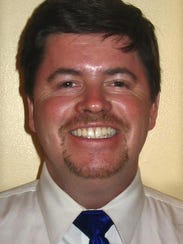
Jed
Block, a former candidate for Nevada Legislature, operates a firm in
Carson City that is among the most prolific registrants of new companies
in Nevada, including those based in other countries. (Photo: Tim Anderson)
Michael
Doyle and Belinda Lanyon, residents of the self-governing English
Channel island of Sark who were convicted of money laundering, used
Nevada to open at least a dozen corporations between 1998 and 2007. The
couple were found guilty of carrying out regulated activities without a
license, according to the Guernsey Police financial crimes unit
records, as well as perversion of justice in connection with the alleged
dumping of documents that could have been evidence.
Doyle
and Lanyon registered companies with names ranging from “Trans Europe
Bancorp LLC” to “The Company of Experimental Techniques of Woodworking
LLC,” records show. All of the couple's corporations have had their
licenses revoked within the last three years, according to state
records.
Records
show Doyle and Lanyon registered their companies through State Agent
and Transfer Service Inc., a registered agent service based at the
address of a former wedding chapel in Carson City, one block from
Nevada’s Capitol grounds.
State
Agent and Transfer Syndicate Inc., is the 11th most-prolific registered
agent in Nevada, the analysis shows. It has served as the registered
agent for more than 13,000 companies.
Jed
Block, president of State Agent and Transfer Syndicate Inc. and a
former candidate for the Nevada state assembly, said registered agents
in the state are not required or expected to research the backgrounds of
individuals seeking to register corporations.
“Our
main focus is filing and retrieval,” he said. “We don’t police, nor do
we give legal advice…We’re solely a document filing and retrieval
service.”
Block said the companies connected to Doyle and Lanyon were registered by a third party, and he had no contact with them.
“That
came to us from another company," Block said of the Doyle and Lanyon
business. "So basically what we did for that company is we probably
filed articles of organization with the secretary of state, retrieved
them, and then sent them off to our contact."
But
after describing the arms-length transaction with the Sark couple,
Block added that If Nevada has a reputation for offering corporations a
place to operate in secret, it is “very much undeserved.”
RACE TO THE BOTTOM
While
federal agencies have long chided small island nations for helping hide
the assets of American companies and individuals, advocacy
organizations have long scolded the United States for doing the same.
The Financial Secrecy Index, published by the London-based Tax Justice
Network , ranks the United States third behind Switzerland and Hong
Kong in its ranking of global tax havens. Panama ranks 13th.
The
U.S. differs from other nations in that each state has its own laws
governing corporations, the Tax Justice Network said in a 2015 report.
As a result, “several states have engaged in a race to the bottom to
outbid one other in offering ever more egregious secrecy facilities.”
Those
states include Nevada and Wyoming, where Mossack Fonseca acted as a
“registered agent,” which is a person or entity authorized to receive
legal papers on behalf of a corporation, whose true owners may be
anonymous.
Nevada
and Wyoming, along with Delaware, are the United States’ most
well-established havens of corporate secrecy, drawing in millions of
dollars in revenue every year by registering companies behind a thick
veil of corporate secrecy. A Delaware statute exempting bulk business
data from the state’s freedom of information law makes any comprehensive
analysis virtually impossible in that state.
Wyoming Secretary of State Ed Murray announced following
the Panama Papers release that an investigation had been launched and
had found that M.F. Corporate Services LLC “failed to maintain the
required statutory information for performing the duties of a registered
agent under Wyoming law,” but has provided the missing information.
Agency spokesman Will Dinneen said the investigation is ongoing and
would not disclose what information was missing.
Nevada Gov. Brian Sandoval also said the state would begin an investigationin related
to the Panama Papers. Nevada secretary of State’s office spokeswoman
Kaitlin Barker declined to answer questions about the exact nature or
scope of the investigation there.
FEDS TAKING INTEREST
Federal officials are also exploring reforms in the wake of the Panama Papers disclosures.
On May 5, Treasury Secretary Jack Lew wrote to House Speaker Paul Ryan,
urging Congressional measures that would require businesses registered
in the United States to disclose the person actually owns them —
referred to as the “beneficial owners.”
“Criminals
are currently able to misuse companies to hide this beneficial owner,
significantly weakening our ability to fight financial crime,” Lew
wrote. “This problem can only be resolved with congressional action.”
Last month, U.S. Sen. Ron Wyden, D-Ore., requested an array of documents from
the Nevada and Wyoming secretaries of state as part of a Senate Finance
Committee investigation into the registration and state oversight of
Mossack Fonseca-linked companies in those states and the implications.
“We
need to better understand what these companies are up to,” Wyden
said. “As shell companies can be abused for tax evasion, government
fraud and terrorist financing, Congress needs to work with the states
and the administration to investigate the issue and take any necessary
action.”
At
the state level, reforms face resistance from officials because states
have become accustomed to increasing the increasing revenue streams from
registration fees When Nevada lawmakers began to debate changes to
further loosen the state’s corporation registration laws in 2001, many
lawmakers were outraged. The legislation implemented protections for
directors and officers of companies against legal liability.
“Make no mistake these subtle changes are significant,” then-state Sen. Bob Coffintold
his colleagues in 2001, according to legislative transcripts.
“Scoundrels can move here.” Another senator said the changes were
equivalent to hanging up a sign saying “Sleaze balls and rip-off artists
welcome here.”
While
there have been recent efforts to close corporate secrecy loopholes
former in Nevada, few actions have been done to lessen the state’s
reputation as a haven for corporate secrecy.
In 2013 testimony before the state Senate, Nevada Secretary of State Ross Millerbegged lawmakers to consider changes that would give officials more oversight over who can register corporations in the state.
“My
Labrador Jack, if he were a natural person, could be a commercial
registered agent if he had $75,” Miller said, “because he has a Nevada
address and is capable of fetching the paper.”
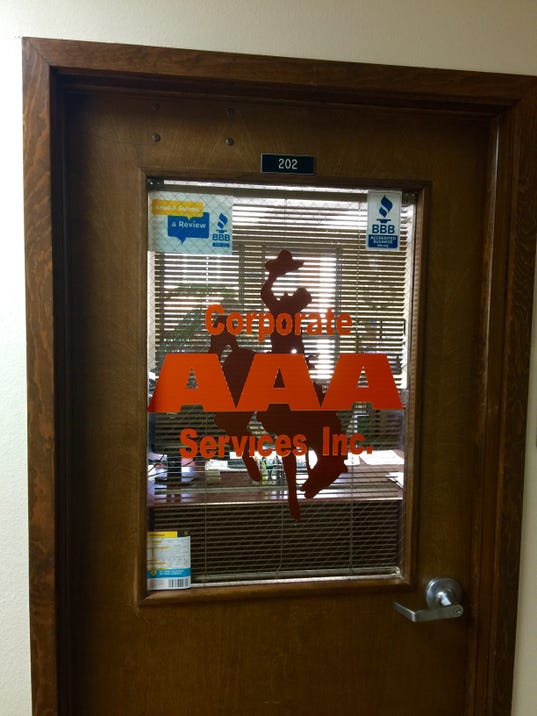
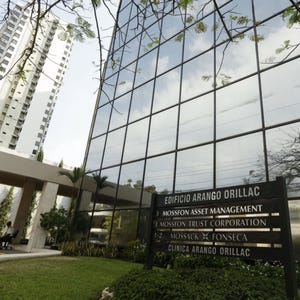
No comments:
Post a Comment